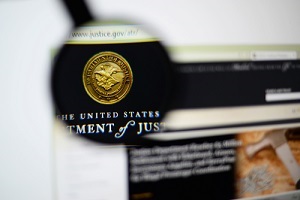Catch of the Week: Lincare, Inc.

This week’s Department of Justice (DOJ) Catch of the Week goes to Lincare, Inc., a durable medical equipment supplier with locations throughout the country. Yesterday (February 15), the company agreed to pay $25.5 million to settle DOJ charges of violating the False Claims Act by billing Medicare for the rental of non-invasive ventilators (NIVs) when patients no longer needed or used them. DOJ also charged Lincare with violating the Anti-Kickback Statute by waiving coinsurance payments to induce Medicare patients to rent NIVs.
Under the applicable Medicare rules, NIV suppliers must ensure the NIVs for which they seek reimbursement continue to be used and remain medically reasonable and necessary. This entails monitoring and documenting how much the patient uses the device and that it is medically reasonable and necessary for the patient to do so. Lincare is supposed to do this through routine home visits by respiratory therapists. But Lincare often skipped these visits or did not otherwise secure the information necessary to justify the NIV.
According to the government, the end result was Lincare billing Medicare for NIVs no longer used or necessary. The government also found that the company waived (partially or in full) the patient’s required co-payment to persuade them to rent NIVs from Lincare. These waivers were not justified based on individual financial need. From the government’s perspective, they were illegal kickbacks purely for the purpose of inducing the sale.
In announcing the settlement, Damian Williams, US Attorney from the Southern District of New York, stressed the importance of billing government healthcare programs only for medically necessary services and products:
When DME suppliers like Lincare knowingly seek federal funds for items that are not medically necessary and not being used, they threaten the sustainability and financial integrity of vital federal health care programs like Medicare and Medicaid. Companies will be held accountable for fraudulent billing practices that prioritize profits over legal obligations.
Like the majority of False Claims Act cases, this one was originated by a whistleblower under the qui tam provisions of the statute which allow private parties to bring lawsuits on behalf of the government against those committing fraud against the government. In exchange, the whistleblower can receive up to 30% of the government’s recovery.
If you would like more information on what it means to be a whistleblower or think you may have information relating to healthcare fraud or any other kind of government contract fraud, please feel free to contact us so we can connect you with a member of the Constantine Cannon whistleblower lawyer team for a free and confidential consultation.
Read More
- Anti-Kickback Statute and Stark Law
- Healthcare Fraud
- I Think I Have a Whistleblower Case
- Contact Us Confidentially
Tagged in: Catch of the Week, FCA Federal, Healthcare Fraud, Lack of Medical Necessity, Medicaid, Medical Devices and DME, Medicare, Other Government Health Programs, Whistleblower Case,